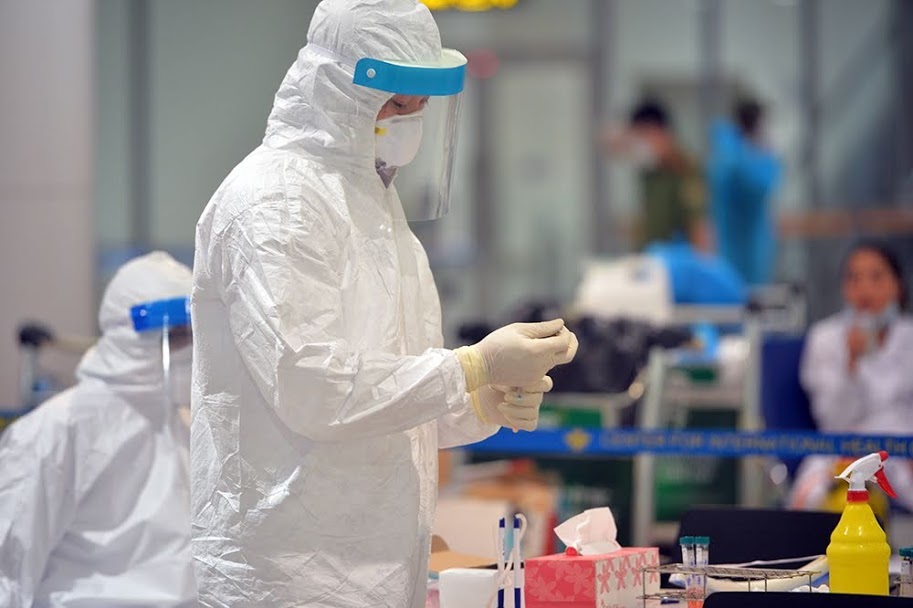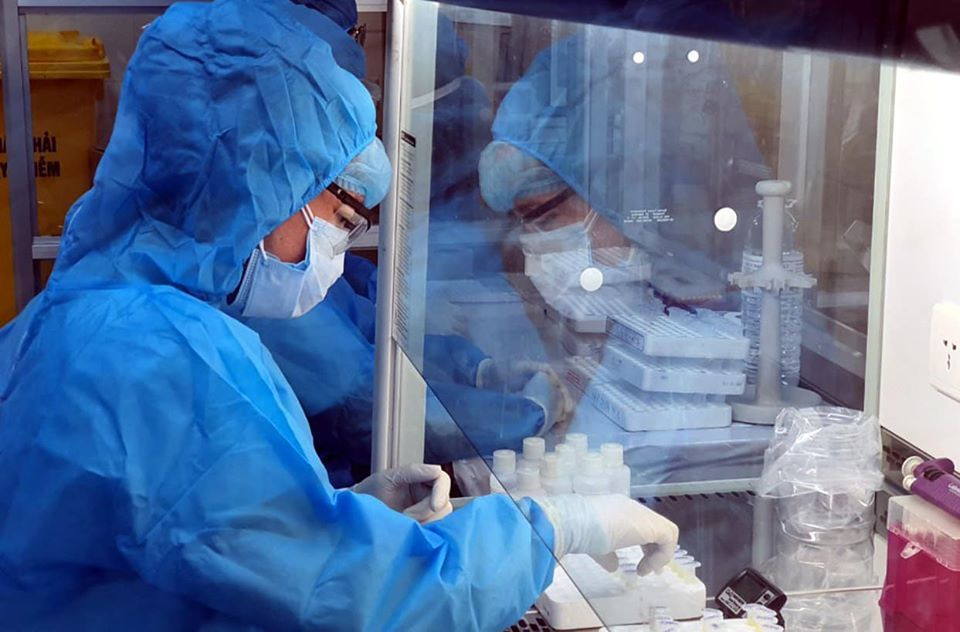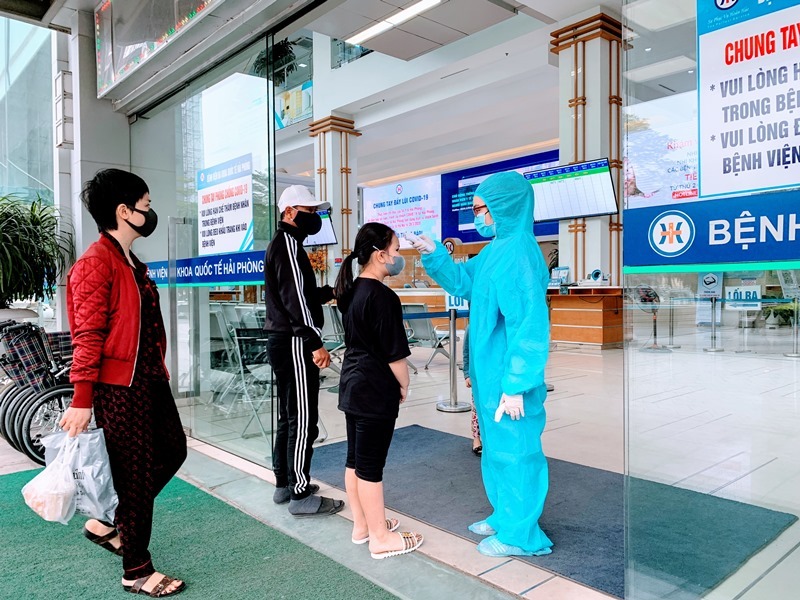People are both the target and the driving force for development
Respecting and protecting human rights is a consistent policy of the Vietnamese State. With that strong commitment, Vietnam has issued a Master Plan to implement the recommendations that Vietnam accepts under the Universal Periodic Review (UPR) cycle three of the United Nations Human Rights Council (Decision Decree No. 1975/QD-TTg dated December 31, 2019). In the first year of implementing the Master Plan, Vietnam made many initial achievements, but there are still many great challenges, especially in the current context of the COVID-19 epidemic.
 |
|
Illustrative photo
|
At the seminar on promoting and protecting human rights in the context of the Covid-19 epidemic, on December 15, Mr. Pham Quang Hieu, Assistant to the Minister of Foreign Affairs emphasized that the workshop took place on the occasion of the 72nd anniversary of adoption of the Universal Declaration of Human Rights (December 10), which marks the common values, aspirations and goals of humanity. This is also the value that the Government and people of Vietnam have shared, strived for and worked towards since the birth of the modern State of Vietnam, emphasized by President Ho Chi Minh in the Declaration of Independence in 1945.
In the current Doi Moi cause, the State of Vietnam has always determined that people are both the goal and the driving force for development; all policies and lines of the Vietnamese State are aimed at building a country with "rich people; strong, just, democratic, civilized country", placing people at the center, and better meeting the legitimate needs of the people. Over the years, Vietnam has made great achievements in national development, creating the material conditions and resources to better ensure the fundamental rights and freedoms of the people.
In that context, with the determination to implement international human rights commitments, including the UPR recommendations that Vietnam has approved, the Vietnamese Government has quickly introduced synchronous and effective policies and measures, with the top priority of controlling epidemics to protect the health of the people; at the same time, minimizing the impact of the epidemic on the economy, maintaining and restoring production and business, ensuring employment, social security and people's lives, especially the vulnerable people. So far, Vietnam has basically controlled the COVID-19 epidemic, leading to a "new normal" state. According to the International Monetary Fund (IMF), Vietnam's economic growth is expected to reach 2.4% in 2020, one of the highest rates in the world. Vietnam's National Assembly also sets the target for economic growth at 6% in 2021.
 |
|
Illustrative photo
|
In response to the COVID-19 epidemic, the Vietnamese Government has paid special attention to timely protection of vulnerable groups through measures such as providing social security support packages, with a total budget of more than VND62 trillion (equivalent to nearly $3 billion) to support more than 20 million people who are the poor, the disabled, the elderly, workers who have lost their jobs, have no income or have reduced income... to quickly stabilize their life. Since early 2020, Vietnam has organized many flights to support people living and working abroad, especially vulnerable groups such as women, children and the elderly who wanted to return home.
In addition, Vietnam also has initiatives to promote coordination and cooperation among countries, international partners and regions in response to the COVID-19 pandemic. One of Vietnam's initiatives is the proposal to establish the World Ready to Fight Disease Day (December 27), approved by the UN General Assembly on December 7, with 107 patronizing countries. The resolution calls for all member states of the United Nations, organizations in the system of the United Nations, international organizations, the private sector, non-governmental organizations, research institutes, individuals to celebrate the International Day of Epidemic Readiness every year in order to increase awareness about disease prevention, thereby having better preparation and coordination on this issue at all levels.
Vietnam's efforts to implement UPR cycle three recognized
 |
|
Illustrative photo
|
2020 is the second year that Vietnam implements the UPR recommendations cycle three that Vietnam has approved. It is expected that Vietnam will develop a Voluntary Midterm Report on the Implementation of Cycle III UPR Recommendations by the end of 2021 and the Cycle IV UPR Report in early 2024.
Also in this year, the COVID-19 epidemic spread, making negative impacts on the world in general and Vietnam in particular, which also affect the enjoyment of basic human rights, especially the right to life, to be protected, to enjoy healthcare services. In that context, the Government of Vietnam has quickly and transparently introduced effective policies and measures with the top priority of disease control to protect the health of the people, and fully implement the international commitments on human rights, including the UPR recommendations that Vietnam accepts.
The whole world is facing the fact that some human rights, including social, economic, civil and political rights, are affected and vulnerable groups are at risk of being left further behind in the context of COVID-19 pandemic and natural disasters, Vietnam is not an exception, said Ms. Caitlin Wiesen, resident representative of UNDP Vietnam.
Recognizing and appreciating Vietnam's commitments and efforts to promote and protect human rights, including the implementation of recommendations under the Universal Periodic Review (UPR) Cycle III, Ms. Caitlin Wiesen recommended that in the coming time, Vietnam should continue to consider human rights and dignity as the center of all actions; continue to focus on implementing the Sustainable Development Goals (SDGs), international conventions on human rights processes (such as UPR, ICCPR, CRPD, CAT…); Apply lessons learned from the COVID-19 pandemic response to implementation of UPR recommendations to build a better future.
|
The UN Human Rights Council's UPR mechanism was established in 2008 and is one of the outstanding successes, built on the principles of transparency, fairness, non-discrimination, promoting dialogue and cooperation between countries. With a consistent policy on the protection and promotion of human rights, Vietnam attaches special importance to and always fully and seriously implement its obligations and commitments in line with UPR mechanism, including the implementation of approved UPR recommendations. During cycle three, Vietnam received 291 recommendations from 122 countries and accepted 241 of them. On December 31, 2019, the Vietnamese Prime Minister approved the Master Plan to implement UPR recommendations cycle three, which Vietnam approved in Decision No. 1974/QD-TTg. |
Tuan Anh